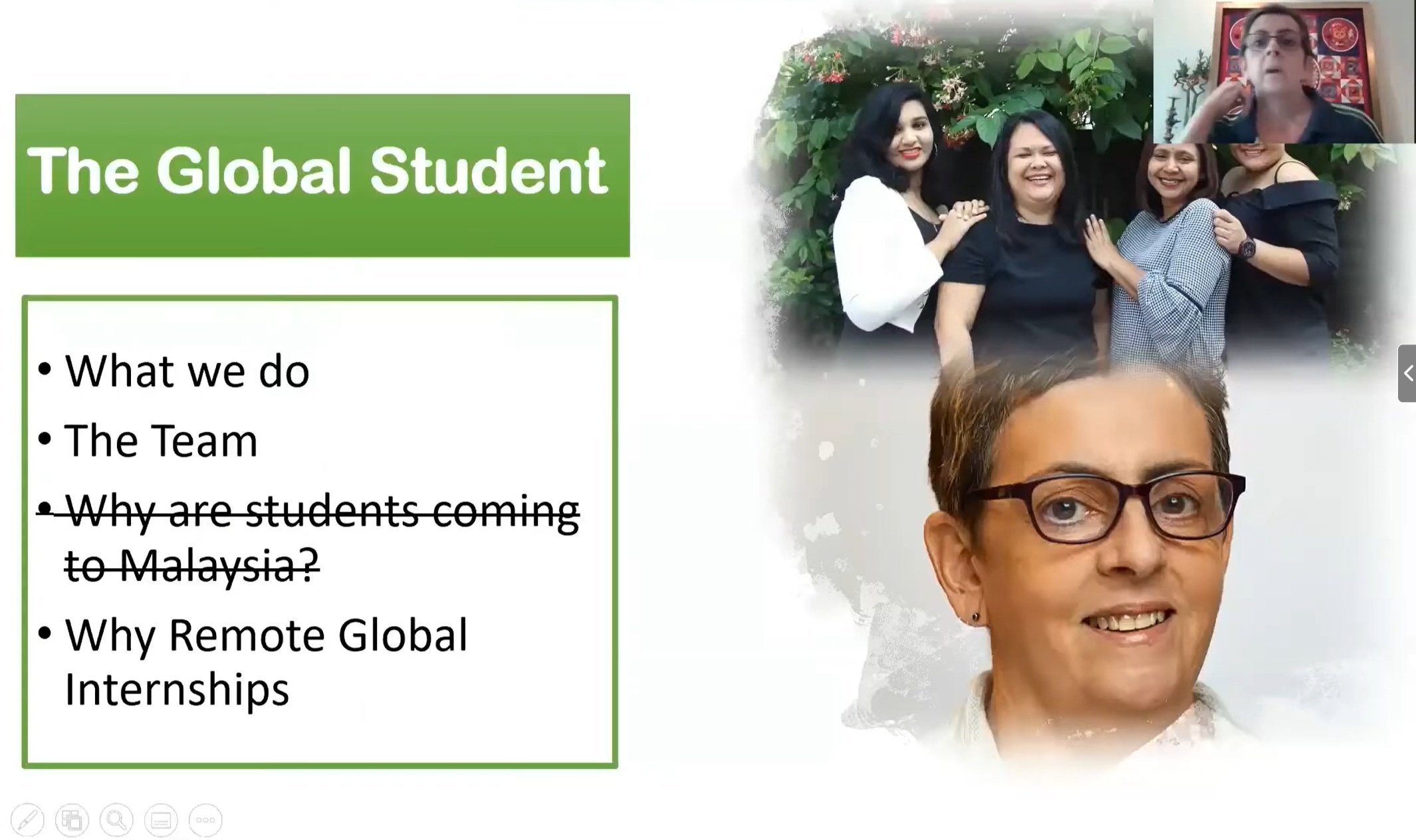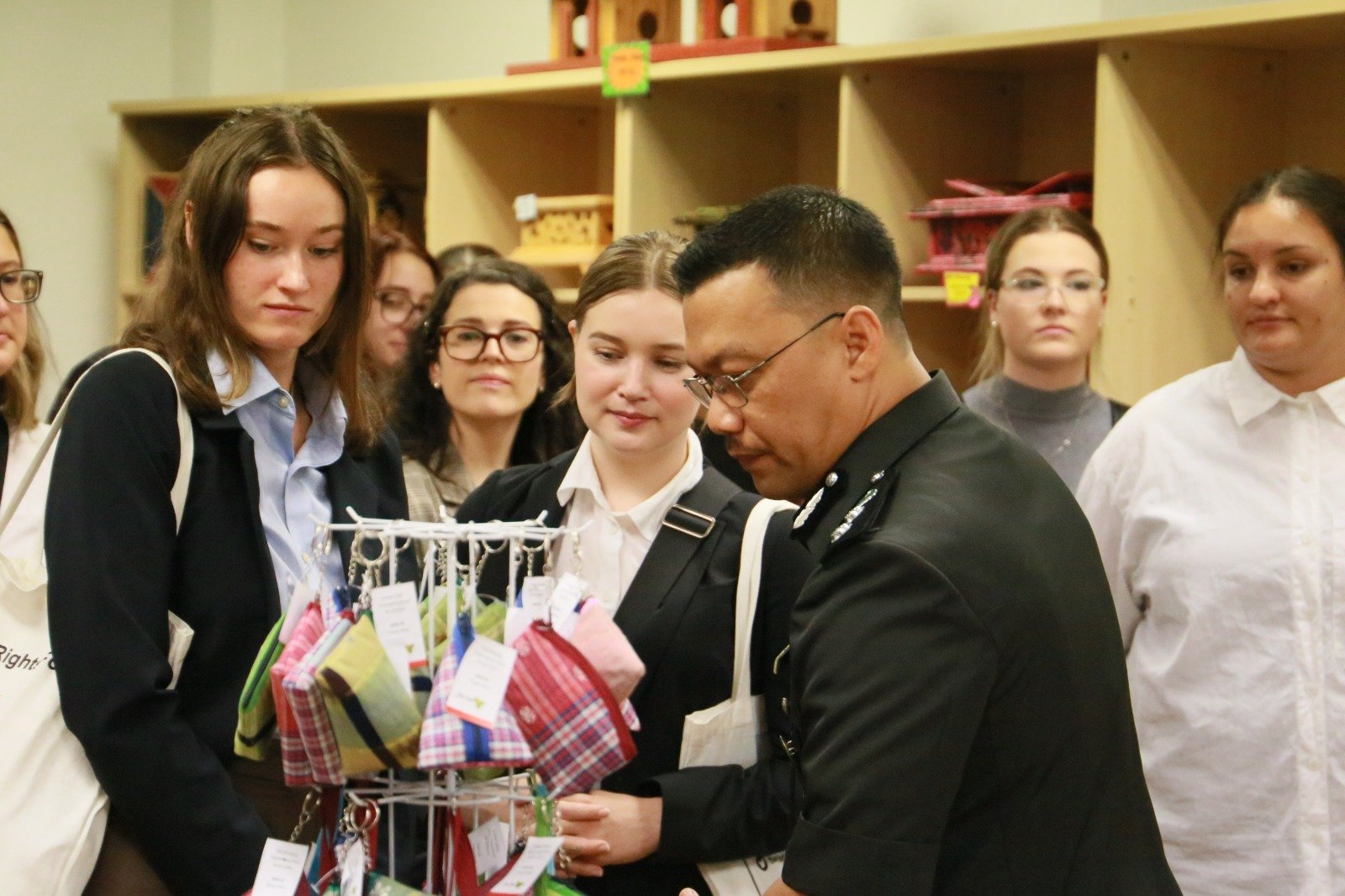
Remote Global Internships
Overview
The Remote Global Internship reflects the hybrid workplaces many of us inhabit these days. The program allows you to gain an understanding of Asian workplace culture, together with an overview of your industry on a global scale, all without leaving home. This opportunity is suited to those who may find an offshore experience difficult due to a disability, lack of finances or other personal circumstances that preclude them from travelling.
The program is designed to provide a similar experience to in-country with pre-departure, an orientation to Asian language and culture, and ongoing cultural and soft skills development via online support throughout the program. It offers something different in terms of skills and knowledge that are valuable for employability in a global context i.e. intercultural communications in the absence of situational context; the use of various, often integrated, technologies; cross border teamwork adaptability and leadership skills; and managing teams and technology across multiple time zones.
What a remote program looks like
Workplace culture and communicaton (ESL)
Remote workspace preparation - technology requirments / familiarity
Provide ‘Kenali Malaysia’ details to complete prior to orientation
Pre-Departure
Working from home etiquette - personal persentation, health
- posture, screentime, cybersecturityCulture - history, politics, socio economics, demography
Basic language
Interns present “Kenali Malaysia” outcomes
Orientation
Activities
Weekly Bahasa classes
Virtual business talk with MABC/exco representative/ AUStrade / Professional organisation
Cultural activites
What is Kenali Malaysia?
In-Country vs Remote Internship
Administration and Host Matching
Pre-Departure - University and TSG Campaign
Orientation
Welcome Packs
Race Around Kuala Lumpur
Cultural Immersion
TSG follow-up and 24-hours support
Networking opportunities
Basic Bahasa Malaysia during orientation
Farewell and debrief - dinner with hosts
Certificates presentation
In-country Program
Administration and Host Matching
Pre-Departure - University and TSG Campaign ++
Orientation
TGS Merchandise mailed/couriered
‘Kenali Malaysia’ - activities to familiarise
Cultural Understanding
TGS follow-up and support ++
Online professional briefings
Weekly Bahasa sessions
Farewell and debrief - with hosts via Zoom
Certificates mailed
Remote Program
The Process
Register and Submit Online Application
Application Review and Document Checks
Zoom with Internship Manager
Host Matching Process
Zoom with Host
Receive Internship Offer and Confirmation
Here’s what our Interns say…
Get an idea of what students and hosts have to say about the Remote Global Internship experience with The Global Student.
Disciplines
-

Nordin Abdullah, MANAGING DIRECTOR, Glenreagh
“The Global Student has taken the pioneering steps to develop and refine the concept of the virtual internships by leveraging off the existing processes of the in-country internships wan made it possible for the program to work. The Global Student has successfully bridged the educational gap between university learning and the working world.”
-

Azura Nasron, Programme Manager, Suaram
“We try to get interns to meet members of the national human rights institution, which is the SUAKAM itself. [Interns] also meet regional international organisations.”
-

Nicolas Tranquille, SR INTERNATIONAL OFFICER, Deakin University
“We were skeptical how we can ensure students would get a similar cultural experience as they would have in-country. And the cultural aspect TGS had incorporated in the program enabled students to engage... which was quite impressive.”
-

Sophie Travers, INTERNATIONAL BUSINESS & MANAGEMENT CONSULTING, University of Technology Sydney
“Although, it was such a short amount of time, the one month went by quickly, I did learn quite a bit. For instance, I learned how to navigate communication through barriers and cultural differences. “















